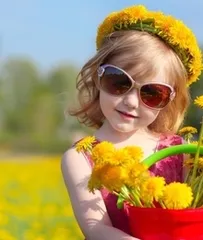Coix seed and pumpkin porridge warms the stomach and slimming in autumn and winter
Recommended this week: Coix seed and pumpkin porridge low-calorie food exchange area>>

Pumpkin 200 g Calories: 44 calories

Coix seed 20 g calories: 71 calories

Rice (50 g) 50 g Calories: 167 calories
Excipients:

Tremella (1 flower) 100 g Calories: 54 calories

wolfberry (20 pieces) 100 g Calories: 72 calories
Seasonings:

Total calories: 71 calories/person-More calories query Your body needs calories
Coix seed and pumpkin porridge-the principle of slimming
Principle of slimming: Pumpkin contains sugar, protein, fiber, vitamin c, vitamin a, vitamin b1, vitamin b2 and mineral salts such as calcium, potassium, and phosphorus. Pumpkin fruit contains 7% to 17% pectin, which has a strong adsorption force. It can bind and eliminate bacteria and toxic substances in the human body, protect the digestive tract mucosa, have a certain effect on digestive tract ulcers, and can also bind cholesterol. Prevent arteriosclerosis. There is a special substance in pumpkin pulp that can promote insulin secretion, lower blood sugar levels, and has special effects on preventing and treating diabetes. The rich vitamins in the fruit have the effect of protecting mucous membranes and have certain effects on protecting vision, preventing eye diseases, and beautifying and losing weight. The reason why eating pumpkin often helps to lose weight is that pumpkin is rich in dietary fiber, which not only provides a strong feeling of satiety but also promotes digestion, and the calories of pumpkin are very low. Autumn is the time when pumpkins are most nutritious. Pumpkin rice and pumpkin porridge are both staple foods for weight loss.
Coix seed has high nutritional value and is known as the "king of gramineae in the world." Coix seed can be used as grain. It tastes similar to rice and is easy to digest and absorb. It can be used as porridge or soup. In summer and autumn, it can be eaten with meals and can also remove dampness. Coix seed is rich in water-soluble fiber, which can degrade the absorption rate of fat in the intestine by adsorbing bile salts, which are responsible for digesting fat, thereby reducing blood lipids. In addition, coix seed can promote the metabolism of blood and water in the body, and has the effect of diuretic and eliminating edema, so it can achieve the effect of losing weight. Coix rice can thin legs, but it is only for edema obesity. If the sisters are not fat but have thick hands and feet, they can eat Coix rice to thin legs.
Coix seed and pumpkin porridge-making steps

1 Prepare pumpkins
Peel the pumpkin, clean it, and cut it into small cubes and set aside for later use.

2 Preparation of ingredients
Soak tremella in cold water for 20 minutes, soak until soft enough for later use. Rinse wolfberry with clear water for later use.

3 Cooking porridge
Wash the rice and coix seeds, pour fresh water into the pan, heat over high heat, add the rice and coix seeds after the water boils, and turn to low heat and cook for 30 minutes.

4 Cooking porridge is completed
Add the diced human pumpkin and shredded white fungus, keep low heat and continue to cook for 15 minutes, and finally add the human wolfberry and cook for another 5 minutes.
Share it on my Weibo
This issue of nutrition consultant

Special guest Sylvia Wang, Master of Food and Human Nutrition, University of Florida, Coix seed pumpkin porridge contains no saturated fat and cholesterol, and almost no sodium. Coix seed can provide dietary fiber and relieve edema. Tremella nourishes skin, wolfberry nourishes blood.
Each person's daily intake varies according to body size and activity status
Sylvia Wang: This is a good staple food. This is a good staple food. Each serving has 45 calories, and the number of calories in 4 bowls is equivalent to the number of calories in a bowl of rice. The daily calorie intake is calculated based on the daily intake of 2000 calories (2000 calories is about the amount an adult boy, a light manual worker, should consume). This porridge is a good source of vitamin A (daily intake of 74%), potassium (5%), magnesium (7%), and vitamin C (7%). This staple food is 90% carbohydrate, so it needs to be paired with meat and vegetables to balance nutrition.>>> See more ways to lose weight